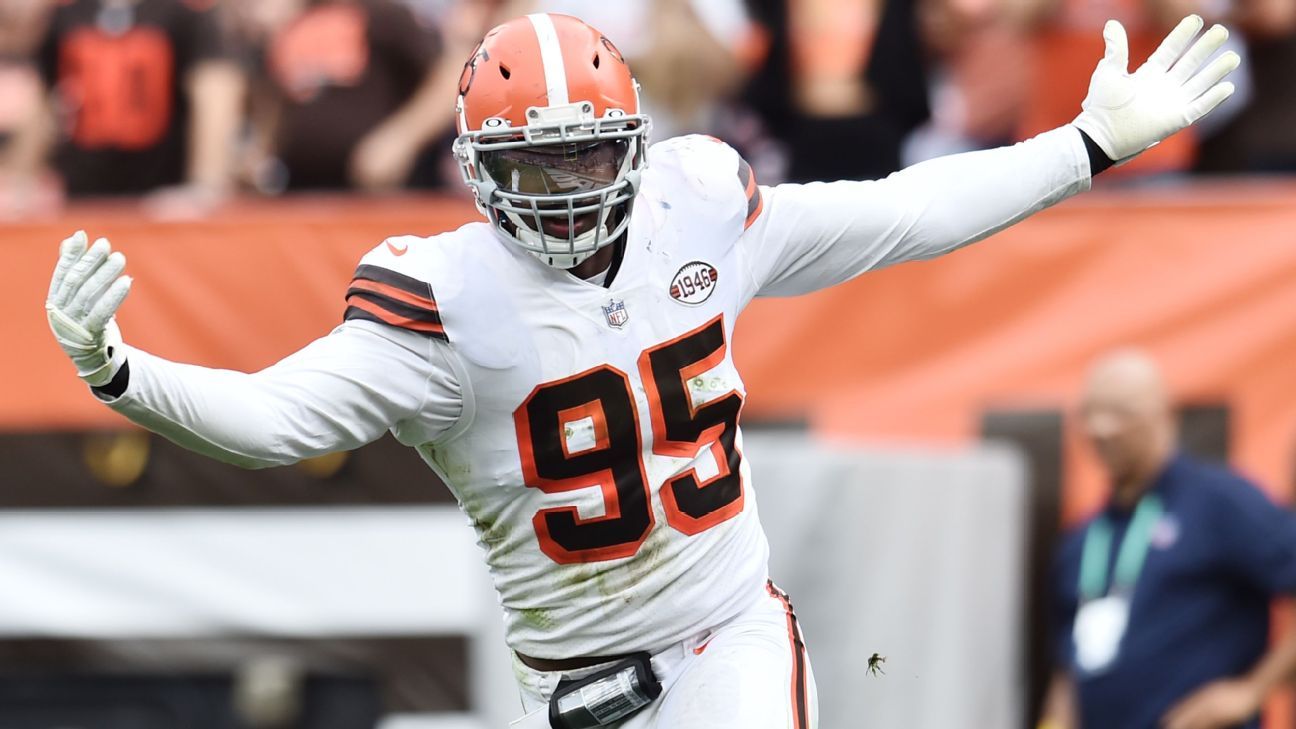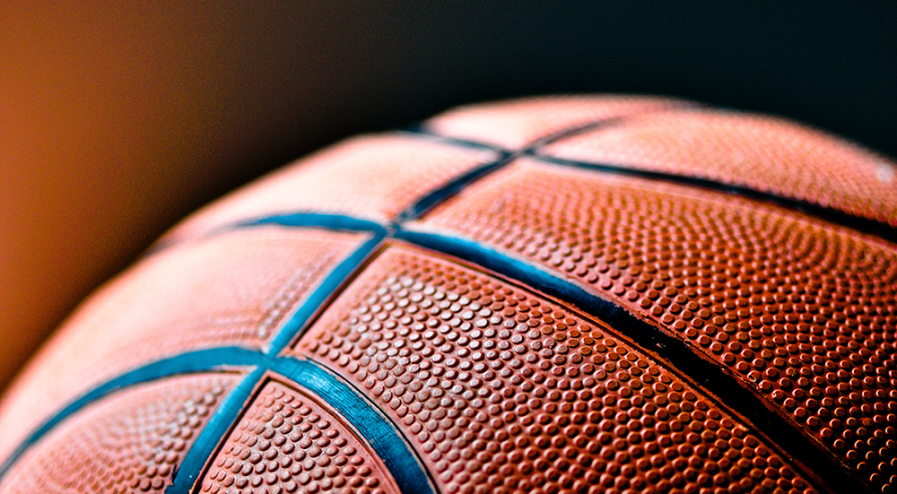Adjustments.
The fans were livid.
All-Pro NFL defensive end Myles Garrett was livid.
The year was 2021. The New England Patriots had just scored 45 unanswered points at home in Foxboro, Massachusetts against Garrett and his fellow Cleveland Browns, a team that had entered the game ranked 13th in total defense and tied for 10th in scoring defense, but seemed impotent against the Patriots quarterback, Mac Jones. Jones, a rookie, threw for three touchdowns in the rout.
The problem, according to Garrett? No adjustments were made by the Browns coaching staff at any time during the game, modifications of the plan of attack to move away from what wasn’t working and try some different tactics.
“We’ve got to go back to the drawing board and see how we can get better, see how we can scheme better, see how we can make adjustments on the fly,” said Garrett, “We never had a chance just because we didn’t make any adjustments on the sideline or when we had time to.”
Garret’s comments may have been in reference to a specific game, a specific team, and a specific scenario, but it isn’t the first time that a coach has been questioned about adjustments, and it certainly won’t be the last.
This leads us to a curious question – not as to if a coach should adjust, but rather, why don’t they adjust their plans in many cases, despite the seemingly obvious evidence that would compel them to do so?
Has their ever been a great coach in any sport that couldn’t (or wouldn’t) adapt their game plan based on some new wrinkle, some unexpected problem? Most fans would be hard pressed to name one. At best, not adapting would be seen as a product of a bygone era that no longer works in the ever-adaptive world of big time sports.
Fans bemoan a college basketball coach who seems to never adjust in-game; if an opposing player unexpectedly explodes in the first half, scoring seemingly at well, fans expect that the coach will make some defensive modification at the half to put a stop to it.
This isn’t always the case; some coaches will play the averages, the philosophy being that the player’s first half scoring will cool off with no changes to the game plan, but if that player continues to score unabated, the coach will look as though he failed the team by not making any adjustments, and not taking into account that the original plan turned out to be wrong was the ball was tipped off.
An NFL head coach may have a season-long plan based on his star quarterback, expecting to ride the QB’s magic arm right into the playoffs – but when the high-powered passer goes does down with an ACL injury in the second game of the season, it would be deemed as foolish for the coach not to adapt and try a different strategy.
In short, new information means a new plan.
Sometimes sports fans or professionals toss out ‘coaching is a science’ metaphorically, but it’s far more apt a description than they may realize. Science, and scientific discovery is based entirely on adjusting based on new information.
The ‘scientific method‘ – the process which all scientific research and discoveries are based – is broken down generally into a series of steps. These steps are used in all sciences – chemistry, physics, geology, psychology, medicine, astrophysics, engineering – there is no scientific endeavor that does not leverage this process.
Arguably, the most critical part of the following the scientific method is the ‘iteration’ step; simply, if a test does not produce the expected results, you go back, modify the plan, and try again.
Myles Garrett was simply stating what he saw as a failure – and what most Browns fans would agree with after the loss – that the coaching staff wasn’t iterating, choosing instead to stick to an their original hypothesis, and therefore not recognizing that their original plan was flawed based on what actually occurred once the game was actually underway.
This all would seem to be obvious to most sports fans – after all, coaching is often seen as a chess match, with each coach and their players making strategic attacks, then adapting to how the opposing team responds. Just as with any science, sports teams and their coaches are expected to ask themselves the hard questions and adapt to the answers, regardless of whether it agrees with their original understanding. A coach who does not adjust is a coach who will be soon unemployed – and yes, there are literally thousands of former professional sports coaches who lost their livelihoods because they could not – or would not – accept that they might be wrong despite what new information was presented to them. Often attributed to hubris, the behavior is far more sinister and difficult to change than a simple case of excessive pride or self-confidence.
Businesses too are expected to adapt to new information; the same products that were best sellers to the public fifty years ago are no longer are worth producing today. Medicines that were considered cutting-edge thirty years ago have been shelved and abandoned for newer, more effective medicines.
It’s an interesting aside that in recent history, some sports fans have developed a disconnect outside of sports between this basic truth and their understanding of the scientific community. Science has a long history of correcting itself when presented with new information. Scientific knowledge is based entirely on what is known ‘now’ and if new knowledge proves existing theories incorrect, the old theories are abandoned.
And yet, science denial became so commonplace as recently as 2020 that it fueled the deadliest life loss in US history, outside of the civil war:
Science denial became deadly in 2020. Many political leaders failed to support what scientists knew to be effective prevention measures.
Over the course of the pandemic, people died from COVID-19 still believing it did not exist.
Many of the very same fans who rant when the head coach of their favorite team won’t adapt to information, themselves committed the very same behavior when faced with it in their own lives, many to the point of death for themselves or those around them. And while the reasons are often tossed aside as ‘political’ or ‘echo chambers’ the more concrete reasons are exactly the same as a head coach who won’t adapt.
Social identity is a major factor for us as humans – we may not realize it, but many times we see ourselves as part of a group, and we adhere our public beliefs to what the group believes – even if we internally know better. Humans also have a bevy of tactics which cause them to decide not to accept new facts: from mental shortcuts to motivated reasoning, we humans have a lot of tactical mental armor that we can don in order to keep from having to face the fact that we may be wrong, especially if it’s a belief we previously thought was an absolute.
Consider a coach who recruits a player for his college basketball team, and he loves everything about the player’s accomplishments and demeanor in high school, he promotes the player to the media, then proceeds to build much of his planned team around that player. If that player fails to produce in the manner that the coach expected, many coaches will stick with that player because they have tied their own identity to being right about recruiting that player. There are hundreds of examples of players who did not deliver what a coach may have expected, but the coach would never waiver from their original assessment of the player, regardless of the evidence. Sadly, the opposite is also true just as often. A coach who scouts a player and decides that player is not talented enough to help his team will often maintain that belief no matter how successful that player may eventually become. Evidence be damned, the coach has motivated reasoning to continue to claim the player is exactly who the coach originally evaluated, simply because that coach does not want to admit to being wrong.
Perhaps the coach has tied being an ‘excellent evaluator’ to his identity and admitting he was wrong about a player means taking a blow to his personally held identity. Sometimes is simply a blind spot, where the coach cannot see that they were wrong one way or the other. Either way, not accepting reality, repeated enough times, is a recipe for losing.
If an NFL coach, no matter how successful they may have been in the 70s or 80s, attempted to win today with the same playbook and scheme, it would fail. The game has changed, the athletes have changed, and the strategy has changed. A great coach from the 1960s might still be able to win today, but only if that coach could adapt their basic winning philosophy to the modern game.
We as humans must be willing to ask ourselves the hard questions, and that holds true for coaches. Coaches who cannot adapt will no longer be coaches.
This does not mean we simply abandon a belief or hypothesis without reflection, but we must adhere to one of the core tenets of all science and human advancement: we must constantly face the reality that we may be wrong.
Coaching may not be considered a true science, but yes, to be a successful coach one must absolutely follow the scientific method, even after a win (which is another, deeper conversation)…so in that sense, the basis of improvement in rocket science and coaching a sport are identical in structure.







